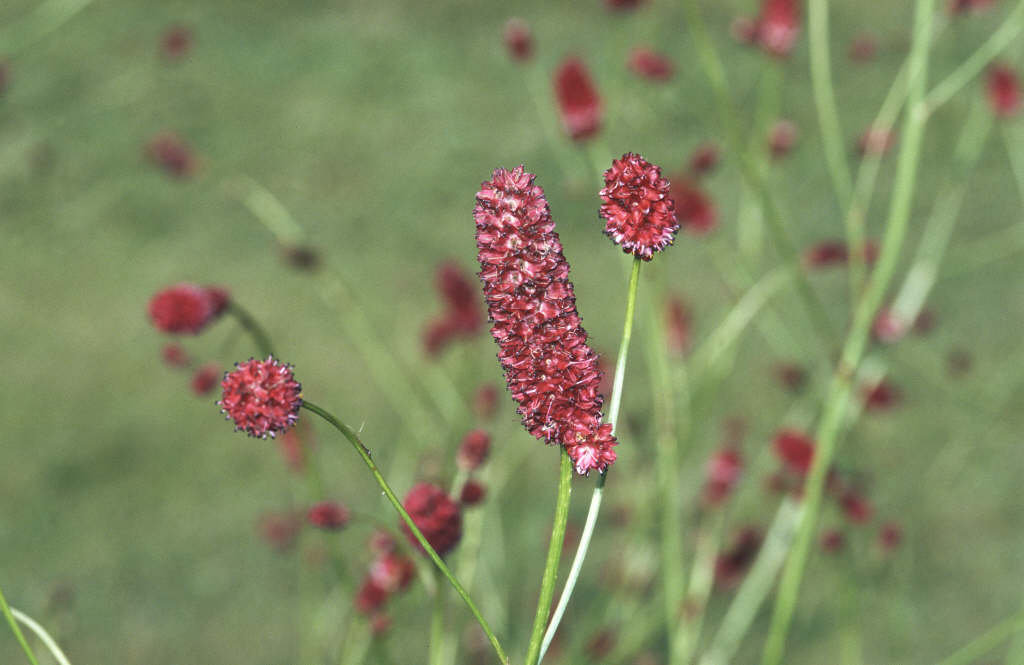Sanguisorba officinalis
great burnet
A compact clump of pinnate leaves with rounded or oblong leaflets, and maroon flowers in dense, rounded or oval spikes in summer and early autumn
Synonyms
Sanguisorba montanaPoterium officinale
Size
Ultimate height
1–1.5 metresTime to ultimate height
2–5 yearsUltimate spread
0.1–0.5 metresGrowing conditions
Moisture
Moist but well–drainedpH
Acid, Alkaline, NeutralColour & scent
| Stem | Flower | Foliage | Fruit | |
| Spring | Green | |||
|---|---|---|---|---|
| Summer | Red | Green | ||
| Autumn | Red | Green | ||
| Winter |
Position
- Full sun
- Partial shade
Aspect
South–facing or West–facing or East–facing
Exposure
Exposed Hardiness
H7Botanical details
- Family
- Rosaceae
- Native to GB / Ireland
- Yes
- Foliage
- Deciduous
- Habit
- Clump forming
- Genus
Sanguisorba are rhizomatous herbaceous perennials with attractive, pinnate leaves and branched stems bearing terminal spikes of small fluffy flowers with conspicuous stamens
- Name status
Correct
- Plant range
- North Temperate reg
How to grow
Cultivation
Grow in moderately fertile, moist but well-drained soil that does not dry out; best in full sun or partial shade. Usually needs support. The rhizomes can spread readily and have the potential to become a nuisance, so site with care
Propagation
Propagate by seed in pots in a cold frame in spring or autumn. Propagate by division in spring or autumn
Suggested planting locations and garden types
- Prairie planting
- Wildflower meadow
- Wildlife gardens
- Cottage and informal garden
- Flower borders and beds
Pruning
No pruning required
Pests
Generally pest-free
Diseases
Generally disease-free
Get involved
The Royal Horticultural Society is the UK’s leading gardening charity. We aim to enrich everyone’s life through plants, and make the UK a greener and more beautiful place.
